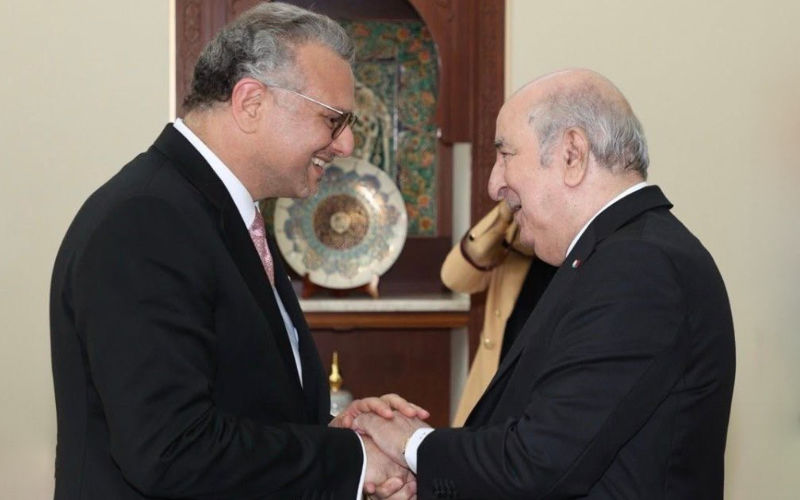Here’s a powerful and click-worthy headline based on the given context:

Massad Boulos, advisor to US President Donald Trump for Arab, Middle Eastern and African affairs, met with Algerian President Abdelmadjid Tebboune in July and carried two essential messages concerning the Sahara issue and relations with Israel.
According to leaks from Washington reported by the American channel Al-Hurra, Massad Boulos explicitly asked the Algerian president for Algeria to work to convince the Polisario Front leadership to accept the Moroccan autonomy plan, and for the country to prepare an operation to normalize relations with Israel, reveals Jeune Afrique. According to the Paris-based monthly, the advisor to US President Donald Trump for Arab, Middle Eastern and African affairs stated during the discussions that the United States and many Western countries believe that the continuation of the conflict over the Sahara and the rupture between Algeria and Morocco compromise the stability of the region, weaken cooperation in the Sahel and hinder prospects for economic integration in North Africa.
However, President Tebboune maintains his position. He rejected any concession on the Sahara issue, which he described as a "red line". He also categorically refused any normalization before the creation of a Palestinian state. This position was reiterated during an interview with the Algerian media on July 19. "I will not abandon the Sahrawis to satisfy some and thus become imperialist [...] Our principles have not changed," he hammered. The author of the article notes that this Algerian rigidity comes at a time when Algeria’s isolation is increasing. Indeed, three permanent members of the Security Council, namely the United States, France and the United Kingdom, have recognized Morocco’s sovereignty over the Sahara.
Spain and Germany, and then the Netherlands, have joined the list of European countries that consider the Sahara autonomy plan under Moroccan sovereignty to be the only applicable solution. "The international community is tired of this issue," said former Moroccan diplomat Ahmed Fathi Faouzi, adding that the great powers believe that the time has come to reach a settlement to end a conflict that prevents the stability of North Africa and weighs on southern Europe. Moreover, the countdown has begun at the United Nations in preparation for October, which could mark a redefinition of MINURSO’s mandate, thus de facto abandoning the referendum option, based on a report to be presented by the UN Secretary-General’s Personal Envoy for Western Sahara, Staffan de Mistura, according to the same source.
Until now neutral, China, a permanent member of the Security Council, which is multiplying its investments in Morocco and is sensitive to issues of territorial integrity, could change its position and support the autonomy plan proposed by Rabat for the Sahara. For Jeune Afrique, the current data seems favorable to Rabat, which benefits from American and European support, while Algeria is faced with the prospect of a strategic defeat difficult to assume in the face of the stubbornness of President Tebboune. The "red lines (he imposes) are eroding under international pressure," the publication concludes.
Related Articles
-

Portugal’s Golden Visa Overhaul: Fund Investments Surge as Property Path Closes
21 September 2025
-

Morocco’s Anti-Corruption Watchdogs: Toothless Tigers in a Sea of Scandal
20 September 2025
-

Morocco Eyes Israeli Kamikaze Drones, Bolstering Defense Ties
20 September 2025
-

Morocco Unveils Sweeping Reforms for Diaspora: Bourita Spearheads Initiative
20 September 2025
-

Algeria’s Sahara Stance Sparks Moroccan Rights Group Backlash
20 September 2025